Medical science has come a really long way in that vaccines are available to protect your baby from many medical conditions that affect children in their first few years of life. A newborn baby vaccination will protect your child from various infectious diseases with just a jab or two. Newborns are particularly susceptible to certain infections, and the vaccines administered in the first year will help to protect your baby from about 15 vaccine-preventable diseases in the years to come. So here’s everything you need to know about vaccinating your little one.
When should you vaccinate your child?
The Indian Academics of Pediatrics (IAP) Advisory Committee on Vaccines and Immunization Practices (ACVIP) has prepared a list of vaccines (Vaccination Schedule) that your child should get in the first few years of life, including the total doses needed for a newborn baby vaccination and the recommended age for each.
What do I do if my baby misses a vaccine dose?
It is important to stick to the vaccine schedule to protect your baby. If you happen to miss a single dose in a series of newborn baby vaccinations, consult your paediatrician and continue from the missed dose. There is no need to take all the vaccine shots from the beginning.
What happens after a vaccination?
Sometimes, after the jab, you need to take after-baby vaccination precautions. Babies experience a slight fever with some pain and swelling at the site of the injection. This is because a vaccine is made up of dead or inactivated micro-organisms against which protection is expected.
Vaccines mimic infection; therefore, after injecting the vaccine, the body activates its immune cells to fight against these organisms, which causes minor symptoms like fever.
But you don't need to worry; these are normal and expected reactions, and they usually subside in a few days.
What are the warning signs I should look for?
Generally, there are no severe reactions to vaccinations. However, you should consult your paediatrician immediately if your little one shows these side effects after baby vaccination:- A temperature of 39°C (102.2°F) or higher, or a fever that lasts more than two days.
- Swelling on your baby's face or lips.
- Symptoms of a severe allergic reaction such as drowsiness, fast heart rate, wheezing or difficulty in breathing.
- Raised, red, itchy bumps or rashes all over the body.
How to care for your child after vaccination?
In the case of an itchy red swelling at the site of injection after your little one has gotten their newborn baby vaccination, make sure that your baby is comforted well. Place a cold cloth over the area. For mild fever, remove excess clothing from your baby and let the skin cool.
After consulting your doctor, you can give paracetamol or non-aspirin–based medication to your baby. Allow your baby to rest well and give her a lot of fluids. Pay extra attention to your baby for the next few days, and if the fever persists or symptoms do not resolve, consult your doctor.
Watch out for the warning signs in your little one, trust your instincts, and your baby will get through the vaccinations in the first year just fine.
List of Vaccination Schedule For Newborn to 12 Years Old
Here is a baby vaccine schedule sorted by age so you never miss one!At Birth:
- BCG
- OPV (oral polio vaccine)
- Hepatitis B-1 (hepatitis)
At 6 Weeks:
- DTwP/DTaP-1 (diphtheria, tetanus, pertussis)
- IPV-1 (polio)
- Hib-1 (Haemophilus influenzae type b)
- Hep B-2
- Rotavirus-1
- PCV-1 (pneumococcal conjugate vaccine)
At 10 Weeks:
- DTwP/DTaP-2
- IPV-2
- Hib-2
- Hep B-3
- Rotavirus-2
- PCV-2
At 14 Weeks:
- DTwP/DTaP-3
- IPV-3
- Hib-3
- Hep B-4
- Rotavirus-3
- PCV-3
At 6 Months:
- Influenza 1st dose(annual vaccination)
At 7 Months:
- Influenza 2nd dose (annual vaccination)
At 6-9 Months:
- Typhoid conjugate vaccine
- MMR-1 (measles, mumps, rubella)
At 12 Months:
- Hepatitis A
At 15 Months:
- MMR-2
- Varicella -1 (chickenpox)
- PCV booster
At 16-18 Months:
- DTwP/DTaP- B1
- Hib-B1
- IPV-B1
At 18-19 Months:
- Hep A-2
- Varicella-2
At 4-6 Years:
- DTwP/DTaP-B2
- IPV-B2
- MMR-3
At 10-12 Years:
- Tdap (tetanus, diphtheria, pertussis)
- HPV (human papillomavirus)
References:
- NICHD. Why are immunizations important for my infant’s health? [2020].
- Immunization Action Coalition. Vaccinations for infants and children, age 0–10 years [2020].
- Kasi S, Shivnanda S, Marathe S, Chatterjee K, Agarwalla S, Dhir S, et al. Indian Academy of Pediatrics (IAP) Advisory Committee on Vaccines and Immunization Practices (ACVIP): Recommended Immunization Schedule (2020-21) and Update on Immunization for Children Aged 0 Through 18 Years. Indian Pediatr. 2020 Nov 29;1-20. (Epub ahead of print). [2021]
- Healthy Children. Missed vaccinations [2020].
- CDC. Vaccines for your children [2020].




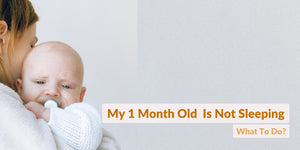

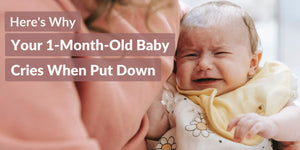
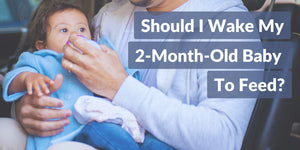
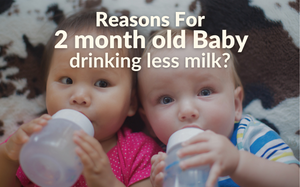
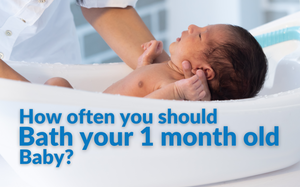



https://www.9thscience.com/why-do-we-fall-ill-class-9-ncert/ ….. Immunization protects children against dangerous diseases by introducing a weakened or dead version of the disease into their body. Regular childhood vaccinations are crucial for preventing outbreaks and ensuring herd immunity. Recommended immunizations vary by country and age, but typically include protection against measles, polio, hepatitis, chickenpox, and more. Talk to your pediatrician about the recommended schedule for your child.